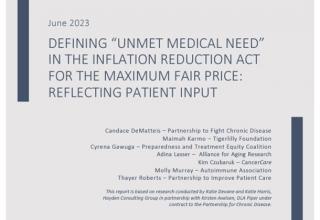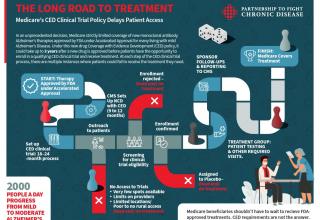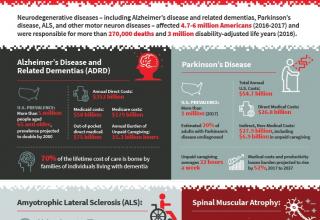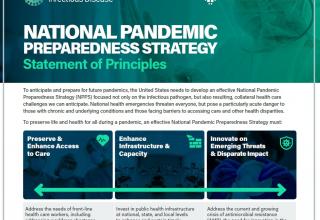
resources

Press Statement - New Insurer Perspectives Highlight Considerable Patient Challenges Anticipated from Prescription Drug Affordability Boards
White Paper - Health Plans Predict:...

Patients, people with disabilities, and their caregivers want their experiences and outcomes that matter to them to be considered when the government or other payers make decisions about their treatments. The Inflation...

INFOGRAPHIC - Leaving Medicare Beneficiaries in Limbo
INFOGRAPHIC - The Long Road to Treatment: Medicare's CED Clinical Trial Policy
INFOGRAPHIC - Patient Registries...

Neurodegenerative disease arises when nerve cells in the brain or other parts of the nervous system lose function and eventually die. Currently available treatments may relieve some of the associated symptoms, but there...

To anticipate and prepare for future pandemics, the United States needs to develop an effective National Pandemic Preparedness Strategy (NPPS) focused not only on the infectious pathogen, but also resulting,...

States seek to limit coverage of drugs approved through the FDA’s accelerated approval pathway designed to accelerate availability of medications that treat serious or life-threatening conditions...

PFCD INFOGRAPHICS:
COVID-19 EXPOSES HEALTH SYSTEM FLAWS, RAISES RISK FOR MANY
CHRONIC DISEASE AND COVID-19: Who's at Risk and How to Prepare
ENFERMEDADES CRÓNICAS Y COVID-19: ¿Quién está en...
Hospital care is the largest contributor to commercial health insurance spending growth, accounting for 42% of the increase since 2016. The growth in spending due to hospitals is more than twice that of the growth due...
